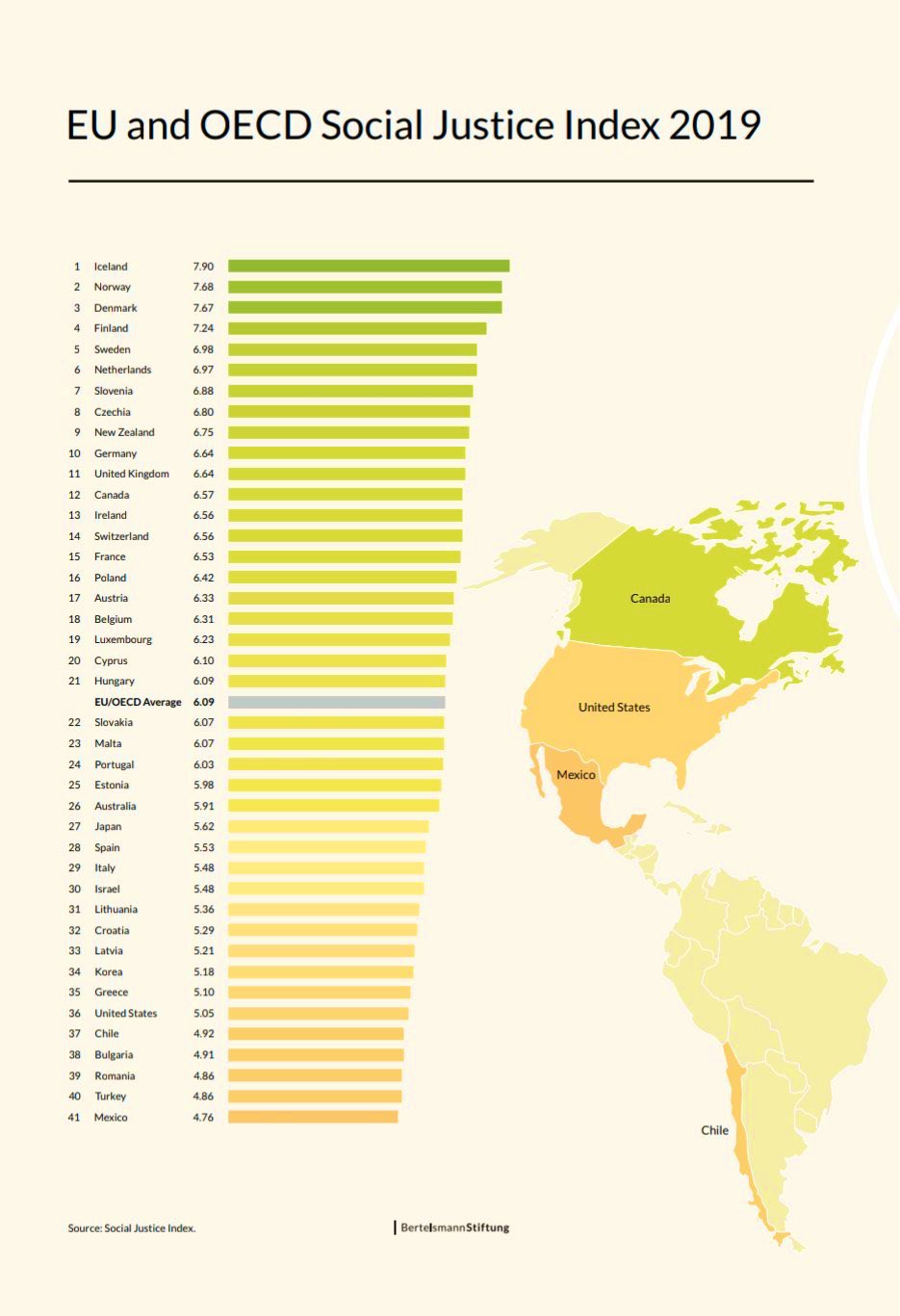By: Tanja Brkić / Nova24tv
With the onset of the economic and financial crisis, social justice in the European Union and the Organisation for Economic Co-operation and Development (OECD) has deteriorated on average, while the social justice index has shown a slight but ongoing upward trend since the economic recovery began in 2014. While the social imbalances in the EU are growing, Slovenia is above average in the social justice index, ranking 7th out of 41 countries.
In recent years, the level of social justice has fallen in most EU member states, according to the study of the social justice index, which was conducted for the first time by the German foundation Bertelsmann Stiftung. The study takes the following aspects of social justice into account: poverty, education, the labour market, intergenerational justice, health, and social inclusion and non-discrimination. Slovenia ranked 7th, after Denmark, Sweden, Finland, Iceland, Norway and the Netherlands. The Czech Republic, New Zealand and Germany are also among the top ten EU countries in the social justice index. Romania, Bulgaria, Turkey and Mexico are at the bottom of the scale. In 7th place, Slovenia is considered above average. The study, which was published online, finds that Slovenia has shown incremental, though moderate, improvement since it was added to the index in 2014. On five of the six social justice dimensions, Slovenia scores above average. It ranks highest on the Equitable Education dimension (rank: 7) and lowest, falling below average, on the Health dimension (rank: 25).
We got the highest rank in the Education dimension
The Slovenian education system has proven more successful than 34 of its peers at ensuring the quality and equity of educational opportunities (score: 7.00). Across all six quantitative indicators on education, the social justice index witnessed improvements compared to ten years ago. The Sustainable Governance Indicators (SGI) country experts find that “Slovenia has moved relatively rapidly from the socialist curriculum tradition toward a more flexible organization of education.” The share of the adult population without upper secondary education has steadily declined over the past ten years from 18.0 percent to 11.9 percent (in this criteria, Slovenia ranks 12th). Also, students from lower socioeconomic households are less disadvantaged today than in the recent past. Slovenia places 21st with regard to the impact socioeconomic factors have on the PISA performance of students.
Comparatively low placement in the Health dimension
Slovenia’s comparatively low placement on the Health dimension is a consequence of long-standing, middling health care system performance with regard to social justice (score: 6.06). On average, Slovenians can expect 70.5 years without a limitation in functioning and without disability, placing the country 27th. In addition, Slovenia also has the second-lowest infant mortality in the sample, 1.7 per 1,000 live births – nearly halving the rate over the past decade. The country experts note that “the Slovenian health care system is dominated by a compulsory public-insurance scheme. This scheme guarantees universal access to basic health services but does not cover all costs and treatments. In order to close this gap, citizens can take out additional insurance offered by commercial insurance companies.” The social justice index also observed that the share of health care expenses being shouldered by households had declined slightly to 12.0% (rank: 5) – the lowest level in the last ten years.

